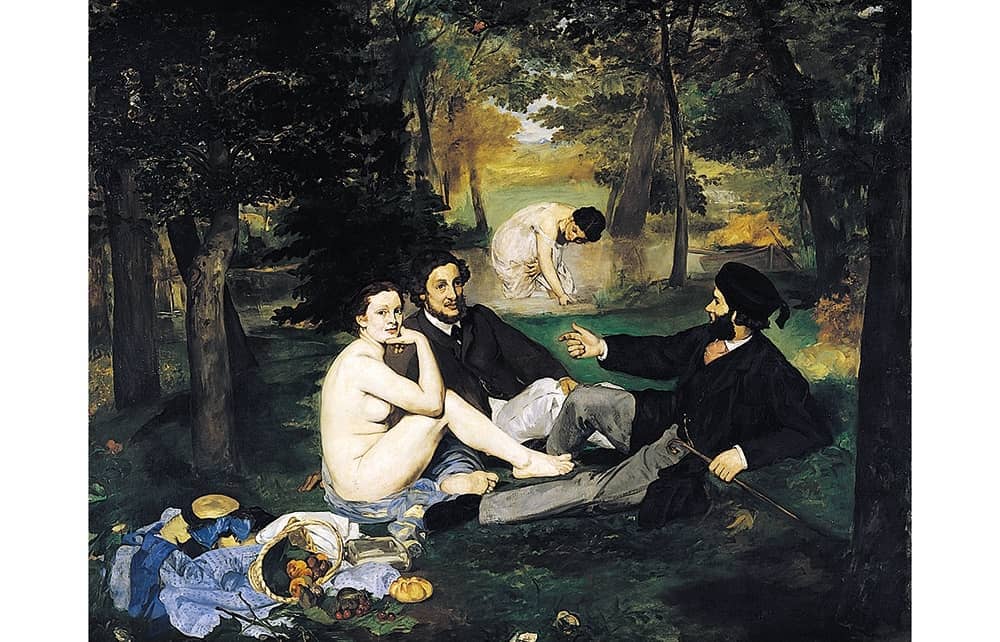‘Astonish me!’ was the celebrated demand that the impresario Sergei Diaghilev made of Jean Cocteau when he was devising Erik Satie’s ballet Parade. Dominic Dromgoole has taken it as the title for a collection of essays on
a series of seismic first nights, ranging across different public art forms. It is a celebration of the artistic achievements that overcame the odds to change the story of culture, and whose effects rippled out to change the world.
The author is a distinguished theatre director, and his focus is on performance. He is at pains to reject the notion of the solitary artist and argues that, from the dawn of history, the finest art has been communal. He notes how long-held theories of cave painting as the work of isolated individuals have been replaced by a belief in their function as backdrops to ‘shamanistic hoolies’. This is the artistic tradition to which he adheres, and which he honours in the book.
So the only visual artists to be included, Michelangelo and Manet, earn their places as much for the conditions and controversies in which their respective works – the statue of David and ‘Déjeuner sur l’herbe’ – were first shown as for their intrinsic value. Dromgoole offers neat sketches of the cultural, religious and political ferment of Renaissance Florence (although he wrongly asserts that Michelangelo shared his youth in the Medici household with Savonarola, who was 23 years his senior) and the cultural shibboleths of Napoleon III’s Paris that led Manet to exhibit his groundbreaking canvas at the Salon des Refusés.
The only exclusively literary figure under discussion, the poet Anna Akhmatova, appears to be an anomaly until one realises that the nub of the essay is the first performance of her poetic cycle Requiem, when she and her friend Lydia Chukovskaya wrote down the words of the poems, memorised them and burnt them, for fear of discovery under the brutal Soviet regime.








Comments
Join the debate for just £1 a month
Be part of the conversation with other Spectator readers by getting your first three months for £3.
UNLOCK ACCESS Just £1 a monthAlready a subscriber? Log in